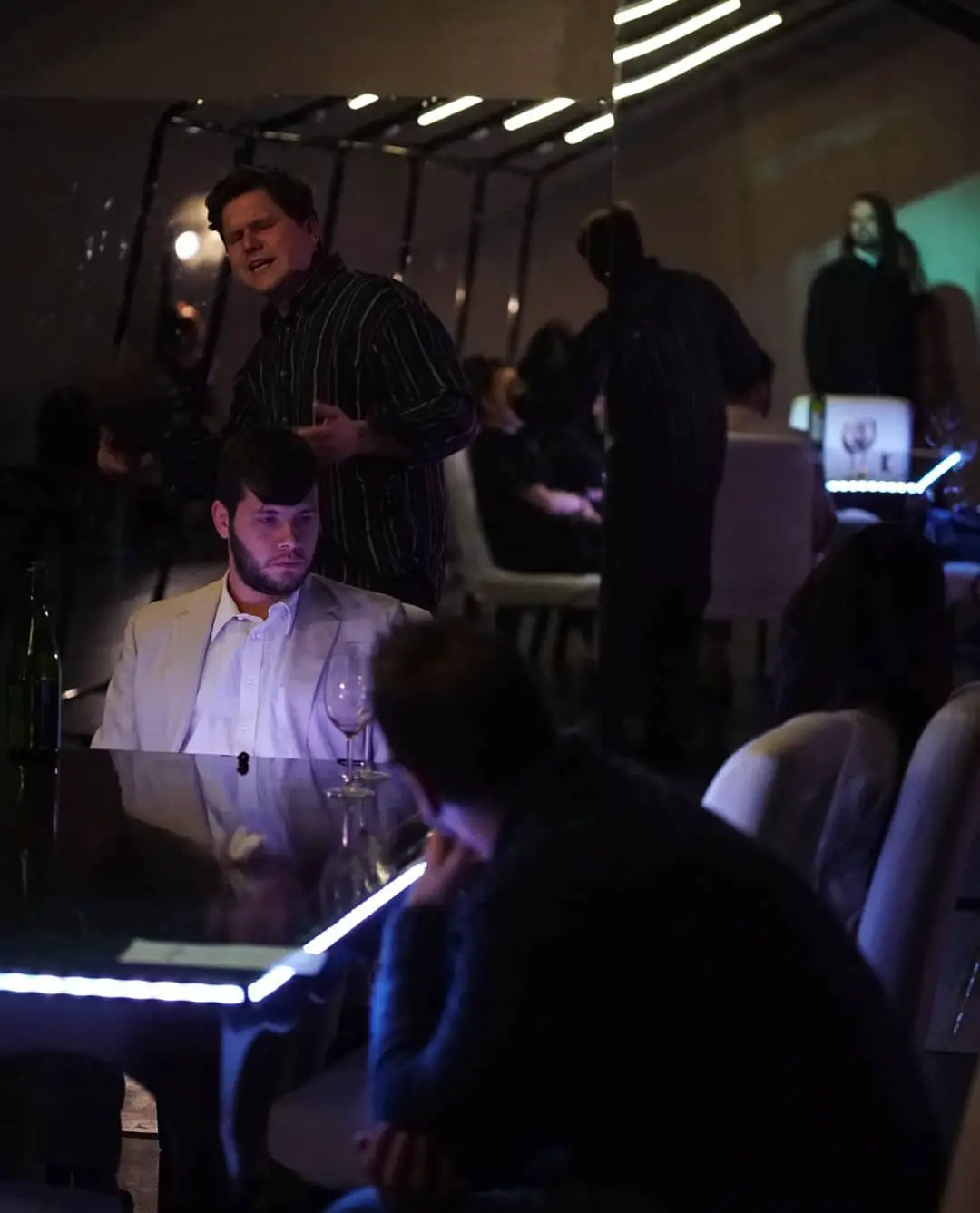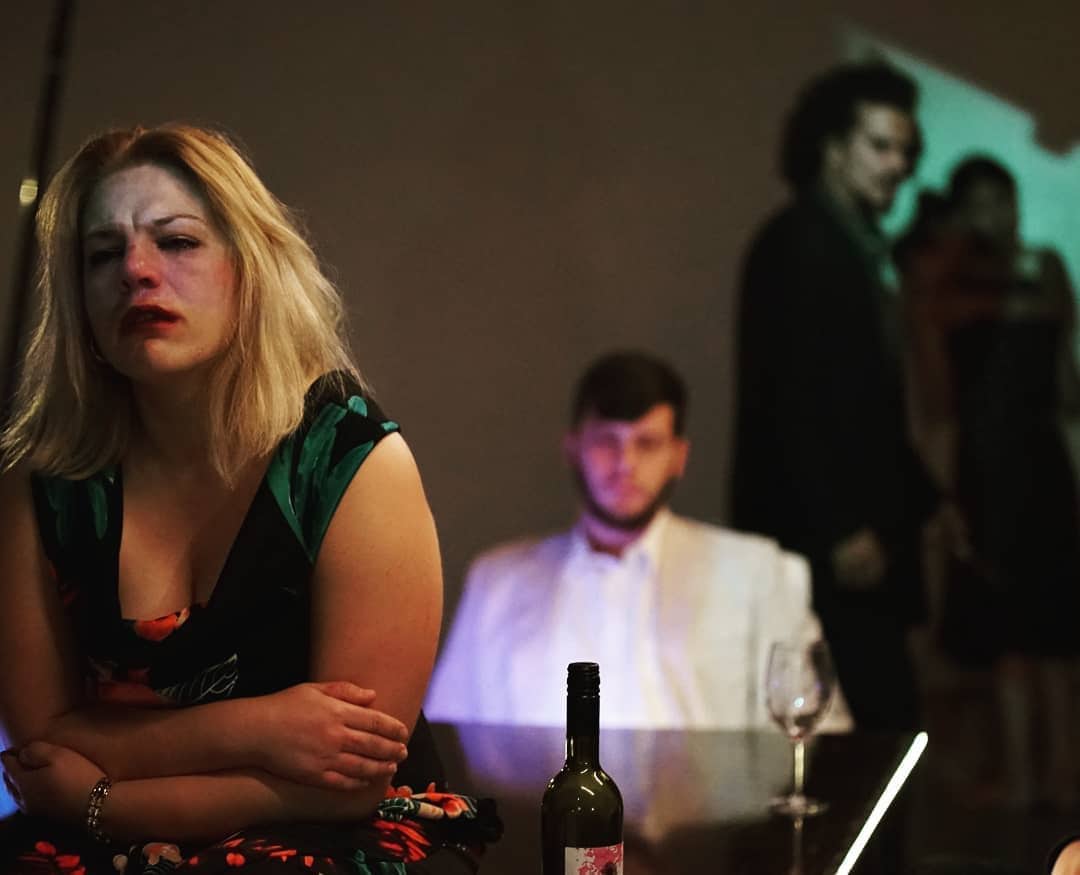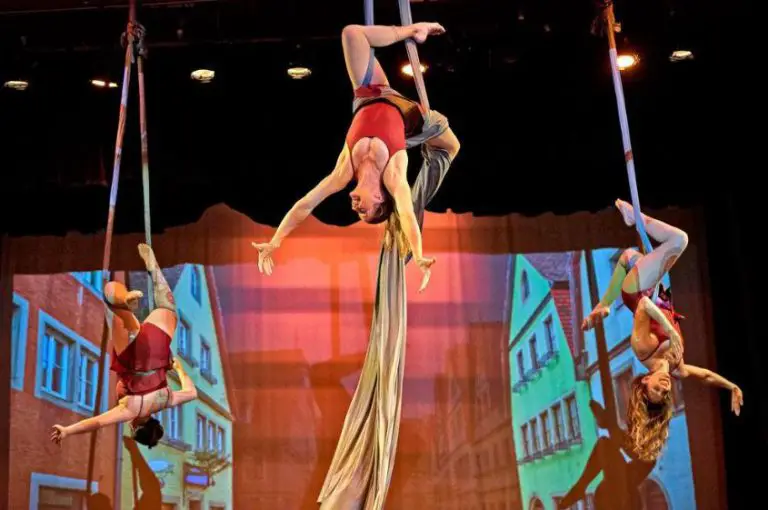Henrik Ibsen’s Ghosts, penned in 1881, can’t be described as the most accessible text ever written, but its criticism of 19th century morals and the controversy surrounding its content is still an inspiration to modern playwrights. Due to its content Ghosts was, to say it generously, not universally praised at its initial release. But it’s no longer 1881, its 2018, its the Hollywood Fringe Festival, and theatre/art collective Dream Walker is re-imagining Ghosts for a contemporary audience.
Dream Walker’s Ghosts is an expressive staging of the complex play, lovingly executed, but not without some setbacks. Billed as “A Whole New Immersive Theatre,” Ghosts seems to be woefully lacking in that regard. Theatre, and good theatre at that, it certainly is—but labeling the production as “immersive” does the work, and the audience, a disservice. We’ve noticed this issue periodically throughout Hollywood Fringe in the past few years; with the increasing popularity of immersive theatre and its recent inclusion as its own category for Fringe-goers, there are always one or two productions that call themselves “immersive” while lacking many of the ideals that define the genre. Ghosts, despite its positive elements, unfortunately falls into this category.

Audiences enter the performance space to find chairs sprinkled throughout the set, clearly not enough for every attendee to have a seat, which is confusing to many. Those who have paid for the “VIP Experience” are the only ones guaranteed seats—though they are at the large dinner table in the center of the “stage.” Here they sit throughout the performance as the action happens around them, often unable to crane their necks to see what’s transpiring. It’s also unclear whether they’re actually meant to eat, how they’ll refill their drinks, etc. I found myself, as an attendee who elected to forgo a VIP seat, grateful that I had more autonomy to explore different vantage points throughout the show. Despite this advantage, I found myself periodically directed to stand in a specific spot by the actors, unsure if I was allowed to move or take a seat (if i could find one) for vast portions of the play, distracting me greatly from what was otherwise an impressive staging.
Outside of the VIP attendees being in the center of what action they could see, the limited “immersive” elements of the play consist in part of short encounters with the performers as guests enter the room. These are again difficult to follow due to the lack of seating near each character. The only successful deviation from a traditional proscenium performance comes during the play proper, where guests that surround the performance space can have intimate unspoken moments with Carissa Songhorian and whispered conversations with Erik Dabrowski, the latter of whom embraces these brief immersive elements with far more gusto than he does his traditional performance as Jacob Engstrand.
As far as the story of Ghosts itself, it’s carried almost entirely by the passionate performance of Joana Knezevic as Helene Alving. She demonstrates an understaning of the text and control of her dialogue that enraptures the audience—the play would lose it’s heart entirely without her. Similarly, the simplicity of Carlo Maghirang’s scenic design and Briana Pattillo’s lighting turn the dinner table-cum-stage into a focal point thats literally surrounded by a cage—an inspired touch that reinforces Ibsen’s theme of the sins of the past metaphorically “trapping” those in the present.

Overall, Dream Walker has limitless potential in the immersive theatre sphere, should they choose to take that route; they only need to instill a sense of audience agency, be it via presentation or interactivity, that makes the immersion palpable. As such, this production of Ghosts is a welcome one, unfortunately marred by its mislabeling as “immersive;” it functions perfectly well as an innovative approach to a traditional play without relying on a production style that it fails to execute.
Find more information about Dream Walker at their website.





